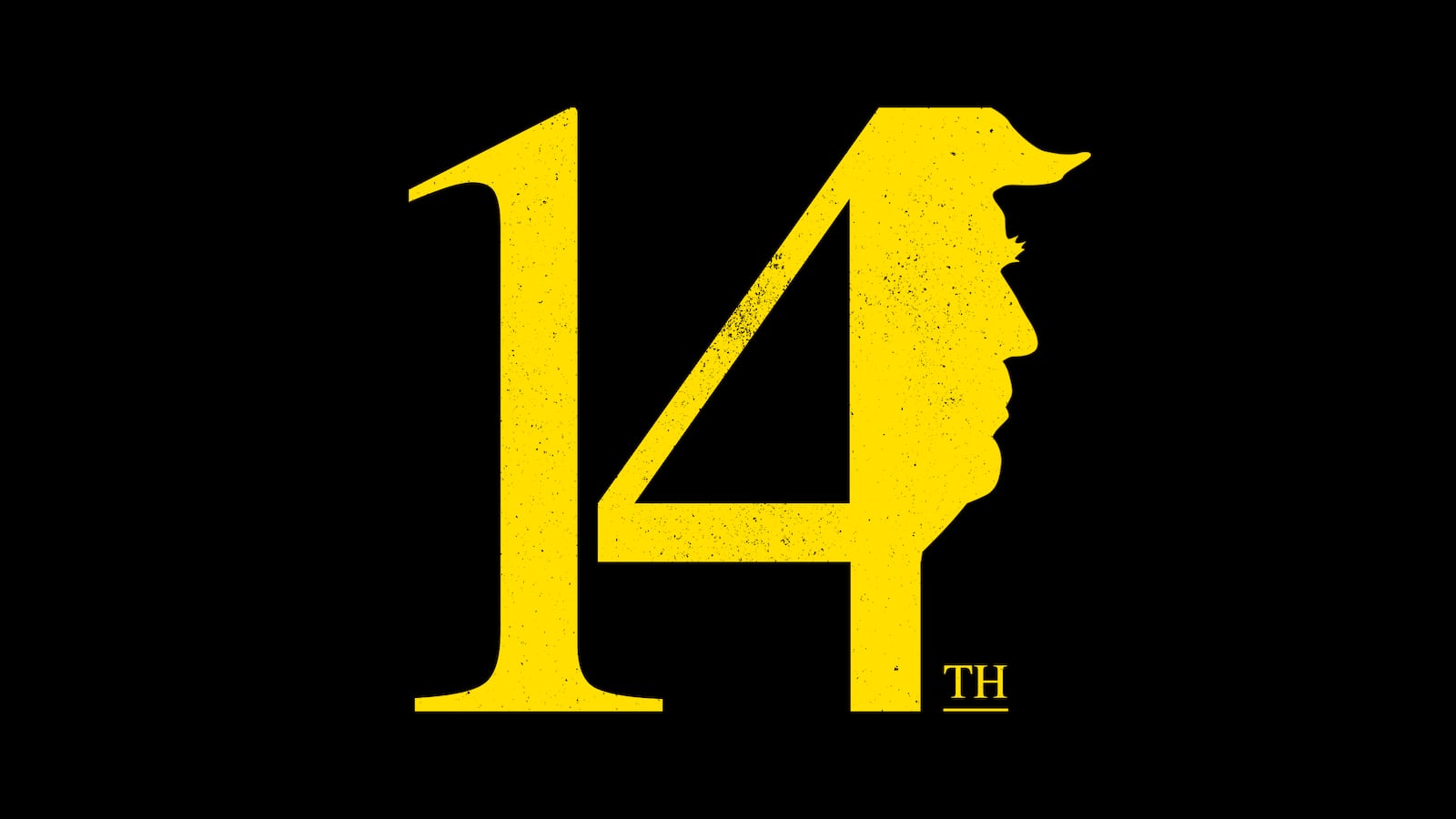The “Disqualification Clause” found in Section 3 of the 14th Amendment fits Donald J. Trump like a glove.
Or as political podcaster Allison Gill asked on the social media platform formerly known as Twitter: “if section 3 of the 14th amendment wasn’t designed for him, who was it designed for?”
The historical answer to Gill’s query is, of course, that it was designed for Confederates trying to get back into the federal government after losing the Civil War. And that very same historical context draws a direct analogy to Trump’s efforts to get back into the presidency after losing the 2020 election.
Here’s what the Disqualification Clause says:
“No person shall be a Senator or Representative in Congress, or elector of President and Vice-President, or hold any office, civil or military, under the United States, or under any State, who, having previously taken an oath, as a member of Congress, or as an officer of the United States, or as a member of any State legislature, or as an executive or judicial officer of any State, to support the Constitution of the United States, shall have engaged in insurrection or rebellion against the same, or given aid or comfort to the enemies thereof. But Congress may by a vote of two-thirds of each House, remove such disability.”
The plain language of this obviously encompasses Trump’s actions to illegally overturn the results of the 2020 presidential election. These actions include but are not limited to asking the Georgia Secretary of State to find additional votes for him, conspiring to put forth slates of unelected “fake” electors for the electoral college, and his call for “wild” protests on Jan. 6 that led to the attack on the Capitol.
But while these actions have resulted in Trump being charged criminally both by the U.S. Justice Department and the State of Georgia, his disqualification does not depend upon him being convicted in either of those cases.
As pointed out by the constitutional scholar Professor Laurence Tribe and former conservative federal judge Michael Luttig in their article in The Atlantic: “the disqualification clause operates independently of any such criminal proceedings and, indeed, also independently of impeachment proceedings and of congressional legislation” and was “designed to operate directly and immediately upon those who betray their oaths to the Constitution, whether by taking up arms to overturn our government by waging war on our government and by attempting to overturn a presidential election through a bloodless coup.”
Tribe and Luttig are hardly outliers in their view. A forthcoming law review article written by Federalist Society conservative law professors—William Baude of the University of Chicago and Michael Stokes Paulsen of the University of St. Thomas—not only agrees that the disqualification is self-enforcing but also makes the case that numerous others who supported Trump’s efforts also may be disqualified.
Baude and Paulsen note that this could include people like former National Security Advisor General Michael Flynn (who proposed a plan to seize voting machines), the “fake electors,” Jeffrey Clark of the Justice Department, and “at least one member of Congress” (that would be Rep. Scott Perry (R-PA)) who had supported Clark’s plans—and even lobbied for removal of senior DOJ officials who opposed Clark’s scheme.
Disagreements with this dream team of constitutional scholars chiefly rely upon two arguments.
They either argue that the words “insurrection” and “rebellion”—require a criminal conviction before Section 3 can be activated or they argue that the legal theory is unsound because the enforcement mechanism is not specified. Both these arguments lack merit.
First, the requirement of a criminal conviction is fictitious because that’s not what the Constitution says. It simply says “insurrection” and “rebellion.” The lack of a specified method of enforcement can hardly be fatal to the legal theory since the Constitution generally does not give specific enforcement instructions.
In fact, there exist a multitude of ways to enforce the disqualification of Trump. For starters, secretaries of state could simply decide he cannot be on the ballot.
Secondly, citizens and states could challenge his presence on the ballot through the courts. There has already been a recent case involving removal of a Jan. 6 rioter from their position on a New Mexico state commission.
All of these, naturally, would result in litigation which likely would end up in the U.S. Supreme Court. Nor is it clear how the Supreme Court would rule on this. Just because there is a conservative majority—including three Trump appointees—does not mean they would rule in his favor, especially given the originalist interpretation bent of the conservative justices.
Some may also wring their hands and clutch their pearls over the worry that seeking to disqualify Trump means that political opponents will begin to regularly seek to disqualify their opponents. Such dangers are recognized by scholars and commentators, but the possibility for abuse is also mitigated by appeals to the judicial system.
Political fallout is inevitable and any efforts to disqualify Trump may even strengthen his support in the short term, helping him to secure the Republican nomination.
But should a single battle ground state or reliably red state disqualify Trump from running, the effect would cripple his chances in the general election.
Anyone who thinks that disqualifying Trump somehow threatens democracy should spend some time watching videos of law enforcement officers being beaten by Jan. 6 mobs while trying to protect the U.S. Capitol from attack. That will provide them with a better understanding of what a real threat to democracy looks like.
At the end of that violent day, Trump made his statement to those who had sought to disrupt the election process. He told them: “We love you. You’re very special.” Sounds a lot like aid and comfort to me.









